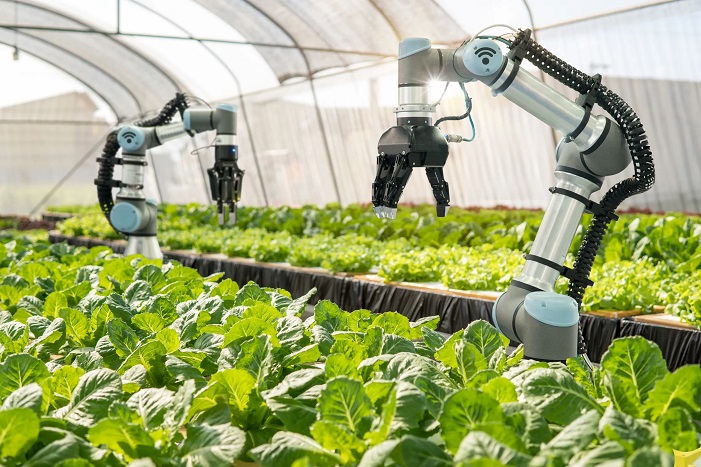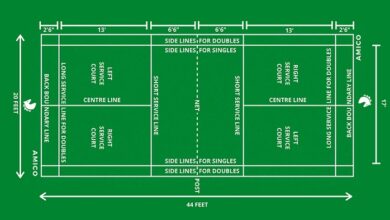B.Tech Food Technology: Is It Right Choice for Your Career?

What is B.Tech in Food Technology?
B.Tech in Food Technology is an undergraduate engineering program that focuses on the science, engineering, and technology behind food production, processing, packaging, and safety. The course combines principles of biology, chemistry, and engineering to ensure the food we eat is nutritious, safe, and long-lasting.
Why Choose Food Technology?
Here are a few reasons why pursuing B.Tech in Food Technology could be a great decision:
- Growing Industry: The food industry is one of the largest and fastest-growing sectors worldwide.
- Diverse Career Paths: From quality control to product development and even entrepreneurship, the opportunities are vast.
- Impactful Work: Food technologists contribute directly to public health by ensuring food safety and quality.
- Innovation-Driven: You’ll be part of exciting innovations, like plant-based foods and sustainable packaging.
Eligibility for B.Tech Food Technology
To get into a B.Tech Food Technology program, you typically need:
- Academic Background: Completion of 10+2 with Physics, Chemistry, and Mathematics/Biology.
- Entrance Exams: Scores from exams like JEE Main, state-level engineering tests, or university-specific entrance tests.
Check with specific colleges or universities for their eligibility criteria.
What Will You Learn in This Program?
The curriculum is a mix of theory and practical knowledge. Key subjects you’ll study include:
- Food Chemistry: Understanding the composition and properties of food.
- Food Microbiology: Studying microorganisms in food and their role in spoilage and preservation.
- Food Process Engineering: Techniques for processing and preserving food.
- Packaging Technology: Exploring safe and sustainable packaging methods.
- Food Safety and Quality Management: Ensuring food meets regulatory and quality standards.
You’ll also have lab sessions, industrial training, and project work to gain hands-on experience.
Top Colleges for B.Tech in Food Technology
Some renowned institutions offering this program include:
- National Institute of Food Technology Entrepreneurship and Management (NIFTEM)
- Indian Institute of Food Processing Technology (IIFPT)
- Amity University
- Lovely Professional University
- Anna University
Research the colleges to find the best fit for you based on factors like location, faculty, and placement records.
Skills You’ll Develop
During the course, you’ll acquire a mix of technical and soft skills, such as:
- Problem-solving and critical thinking.
- Analytical skills to assess food quality.
- Technical expertise in handling food processing equipment.
- Leadership and teamwork abilities.
Know more about: B.Tech CSE Syllabus.
Career Opportunities After B.Tech in Food Technology
The food industry offers a wide range of career options:
- Food Safety Officer: Ensuring compliance with safety regulations.
- Quality Control Manager: Maintaining high standards in food production.
- Product Development Scientist: Innovating new food products.
- Packaging Specialist: Designing eco-friendly and effective packaging.
- Entrepreneur: Launching your own food-based business.
You can also pursue higher studies like M.Tech or MBA to advance your career.
Average Salary in Food Technology
Entry-level salaries range from ₹3–5 LPA, depending on the role and company. With experience, professionals can earn up to ₹10–15 LPA or more, especially in managerial positions or niche areas like research and development.
Challenges in Food Technology
While the field has many advantages, it’s essential to be aware of the challenges:
- Staying updated with ever-changing food regulations.
- Adapting to rapid technological advancements.
- Balancing sustainability with industry demands.
Is B.Tech in Food Technology Right for You?
If you have a passion for science, innovation, and making a difference in people’s lives, this field is worth considering. It combines technical expertise with creativity, offering a fulfilling and impactful career.
Final Thoughts
B.Tech in Food Technology is more than just a degree—it’s a pathway to contributing to global food security, safety, and sustainability. With the growing demand for skilled food technologists, this is an exciting time to join the industry.
FAQs About B.Tech in Food Technology
1. What is the duration of the B.Tech in Food Technology course?
The course duration is typically 4 years, divided into 8 semesters.
2. What subjects should I focus on in 12th grade to prepare for this course?
You should focus on Physics, Chemistry, and Mathematics/Biology, as these are key subjects for eligibility and entrance exams.
3. Is there an entrance exam for B.Tech in Food Technology?
Yes, admission is often based on entrance exams like:
- JEE Main
- State-level engineering entrance exams
- University-specific exams
4. Can I pursue B.Tech in Food Technology without Mathematics in 12th?
Some universities allow students with Biology instead of Mathematics, but this varies by institution. Check the eligibility criteria of the colleges you’re applying to.
5. What are the career prospects after completing this course?
Career options include:
- Food Safety Officer
- Quality Control Manager
- Product Development Scientist
- Packaging Specialist
- Research Analyst
6. What is the starting salary in this field?
Fresh graduates can expect a salary of ₹3–5 LPA. With experience and expertise, this can go up significantly.
7. Are there internships during the course?
Yes, most programs include industrial training or internships to give you hands-on experience in food processing, safety, and packaging.
8. Can I pursue higher studies after B.Tech in Food Technology?
Absolutely! Popular options include:
- M.Tech in Food Technology
- MBA in Food Business Management
- Ph.D. in Food Science and Technology
9. Is food technology only about packaged food?
No, it covers a wide range of areas, including:
- Agricultural produce processing
- Functional foods and nutraceuticals
- Dairy, meat, and seafood technology
- Sustainable packaging solutions
10. What skills are important for success in this field?
Key skills include:
- Analytical thinking
- Attention to detail
- Problem-solving
- Teamwork and leadership
- Technical expertise in food processing
11. What are the challenges in food technology?
Challenges include:
- Keeping up with changing food regulations.
- Ensuring sustainability in food production and packaging.
- Managing quality control in large-scale operations.
12. Is B.Tech in Food Technology suitable for entrepreneurship?
Yes! This degree provides the knowledge and skills to start your own food-based business, such as a manufacturing unit or an innovative product line.
13. Which industries hire food technologists?
Industries include:
- Food processing companies
- Beverage manufacturers
- Dairy and bakery sectors
- Research and development labs
- Government regulatory agencies
14. What certifications can enhance my career in food technology?
Certifications like HACCP (Hazard Analysis Critical Control Point) and ISO Food Safety Management Systems can boost your profile.
15. Is the food technology field growing?
Yes, the global food industry is growing rapidly, with increasing demand for skilled professionals in areas like sustainable practices, innovative products, and food safety.



